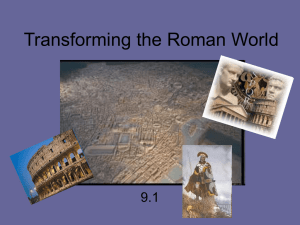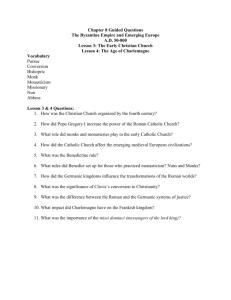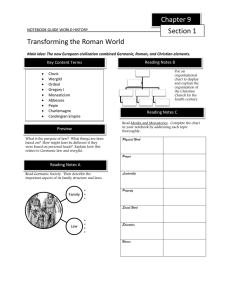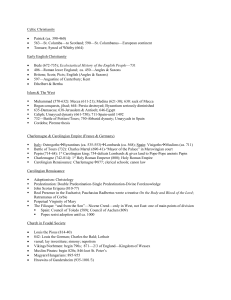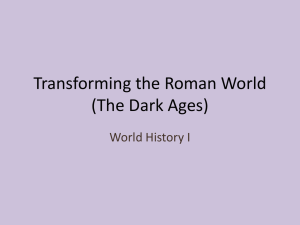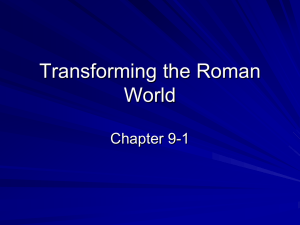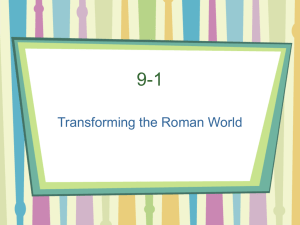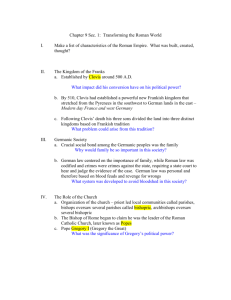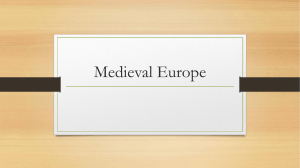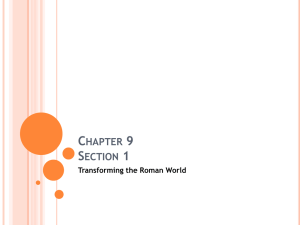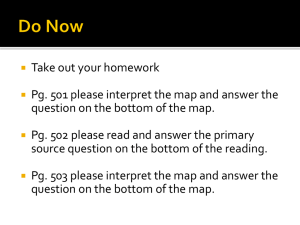Europe after the Fall of Rome
advertisement
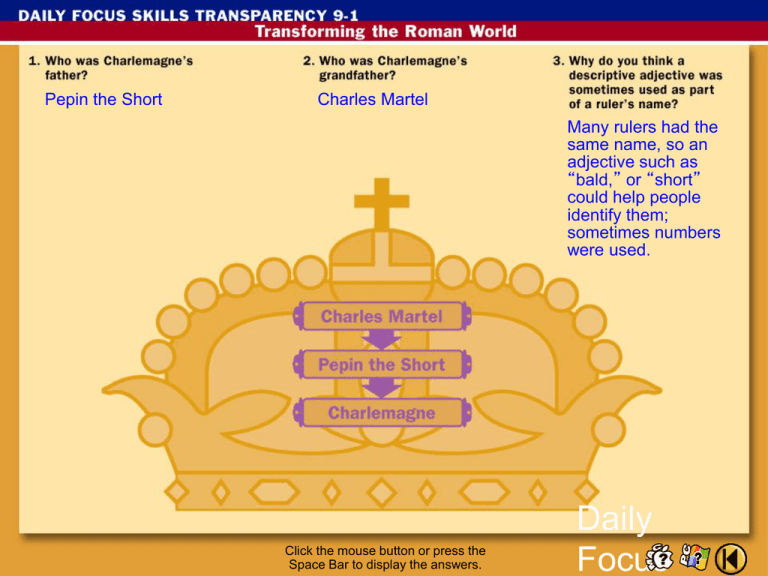
Pepin the Short Charles Martel Many rulers had the same name, so an adjective such as “bald,” or “short” could help people identify them; sometimes numbers were used. Click the mouse button or press the Space Bar to display the answers. Daily Focus Transforming the Roman World Charlemagne Germanic Kingdoms 500 AD New Germanic Kingdoms Germanic peoples began moving into the lands of the Roman Empire around the 3rd Century Visigoths occupied Spain and Italy(Ostrogoths later took control) Angles and Saxons- Britain Saxons- Northern Germany Franks- France Longest lasting was the K. of the Franks Clovis established it around 500 Strong military leader First Germanic ruler to convert to Christianity- won support of Roman Catholic Church The Role of the Church By the 4th C, Christianity had become the supreme religion of the Roman Empire Developed a system of organization Priests head local parishes A group of parishes=bishopric Headed by a bishop A group of bishoprics=archbishopric Headed by an archbishop The Bishop of Rome came to claim he was the leader of the Roman Catholic Church (the Pope) Based on the belief that Jesus gave Peter the keys to Heaven Peter=1st Bishop of Rome (1st Pope) The Role of the Church Most Western Europeans accepted the pope as leader, but his role was undecided Pope Gregory I (590-604) extended the power of the papacy Took political control over Rome and surrounding areas (Papal States) Used Church revenues to raise armies Fought off the Byzantines and the Lombards Extended his power within the Church Converted non-Christians through the monastic movement The Role of the Church Monks separate themselves from worldly, everyday life to dedicate themselves to God Monasticism=living the life of a monk 6th C- St. Benedict founded an order Divided the day into activities Emphasize prayer and physical labor All aspects of Benedictine life were communal An abbot (“father”) ruled each Benedictine monastery Took a vow of poverty Became the heroes of Christian civilization due to their commitment Became the social workers of society Monasteries became important centers of learning Monks would spread Christianity Missionaries= people sent out to carry a religious message The Role of the Church Women Could become nuns- dedicate their lives to God Lived in convents, headed by abbesses Many belonged to royal houses Only way for women to receive an education The abbess Hilda founded a monastery in Whitby in 657 Gave learning an important role Educated 5 future bishops Charlemagne and the Carolingians 7th century- Frankish kings lost their power Chief officers of the king took control Pepin assumed the throne Pepin’s son was Charles the Great (Charlemagne) He was a strong warrior and statesman, and a devout Christian He expanded the Frankish Kingdom into the Carolingian Empire (Western and Central Europe) 800- he was crowned Roman Emperor Testifies to the enduring nature of the Roman Empire Symbolized the coming together of the Christian and Germanic elements of society The Pope crowned him Emperor Charlemagne and the Carolingians Charlemagne strongly supported learning Led to the Carolingian Renaissance (rebirth) Renewed interest in Latin culture and classical works (Greeks and Romans) Monasteries played an important role Benedictine monks copied Christian and Latin manuscripts in writing rooms, called scriptoria Most of the Roman works we have today exist because of these Carolingian monks
